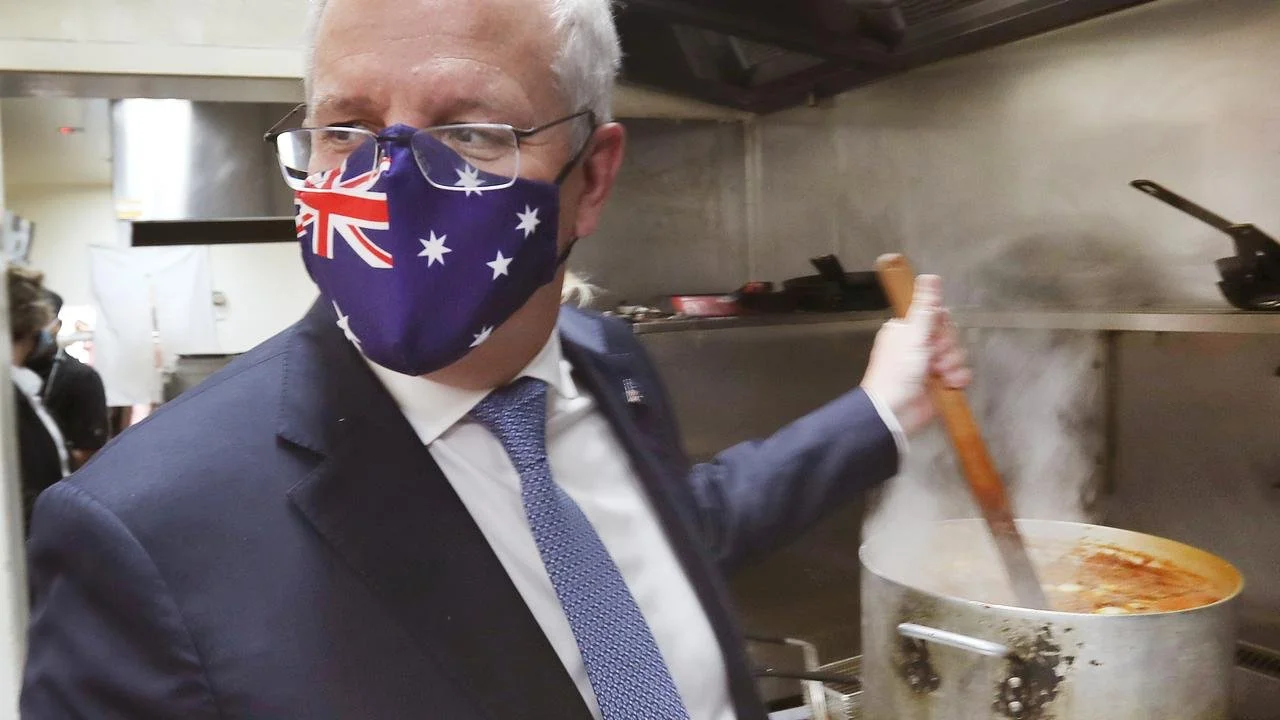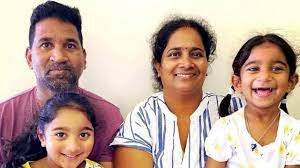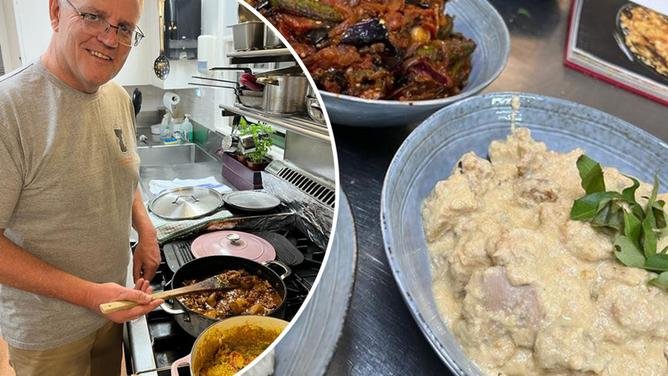Is there a disconnect between how we view racism in Australia and our attitudes towards people of different backgrounds and how they ‘fit in to our way of life’?
For those with no lived experience of racism or discrimination based on cultural background, Australia can seem like a multicultural paradise.
A middle-aged white Australian of Anglo background cooks a curry
For others it can be the polar opposite.
The Nadesalingam family
Discussion about race and multiculturalism in Australia (or anywhere) is often fraught. Calling Australia 'a racist country' may come across as simplistic and blunt; unfairly accusatory towards those who feel they treat others with respect no matter their background.
Conversely, if there are obvious and frequent instances of racism in a country, isn't that country, by definition, racist? (which would pretty much apply to every country on the planet).
Another white guy talks about racism
In the name of full disclosure, like the former Minister for Everything, I am a middle-aged white Australian of Anglo background (and yes, I too like cooking curries). So I am wary of making emphatic claims about the level and nature of racial discrimination in this country. So to get a more objective view, let's look at some current data on the subject instead.
Amnesty International Australia Human Rights Barometer
Results from the Amnesty International Australia Human Rights Barometer survey for 2022 are soon to be released. Designed and conducted by us at Pragmatic Research in conjunction with AIA, it provides a reliable and objective monitor of Australians’ attitudes to human rights and a range of related issues.
The Barometer contains a number of questions about the perceptions of multiculturalism and racism in Australia and our own experiences of discrimination.
First, the good news
Source: Amnesty International Australia Human Rights Barometer 2022 (sample n=1,606)
The latest Barometer results show that 80% of the 1,606 Australians surveyed agree that “we all have a responsibility to stop racism”. Only 4% disagree and a slightly puzzling 16% neither agree nor disagree or are unsure.
Australia, we have a problem
But when asked if "Australia has a problem with racism", a majority (55%) agree with the statement.
A white woman who doesn’t see any problems with racism in Australia
This perception of our racism problem exists across many demographic groups, too. Old, young, male, female, city, country, people with Anglo and non-Anglo ancestries, One Nation voters.... (actually, scrap that last one).
But overall it is a view commonly held.
So what is driving these perceptions?
Let's start with those who have actually experienced racism (obviously the most important group in this discussion).
Source: Amnesty International Australia Human Rights Barometer 2022 (sample n=1,606)
The Human Rights Barometer says that one fifth of Australians (21%) have experienced discrimination based on their race, nationality, ethnicity or the language they speak. Or to put it another way, of the 43% of Australians who say they have experienced any form of discrimination in their life (whether based on race, gender, sexuality, disability, political beliefs, class or other manifestations), for around half of these people (the 21%), ethnicity and cultural background have been the source.
Not surprisingly, the majority of those who have experienced this type of discrimination do say that "Australia has a problem with racism."
More than curry and cricket
The 2021 Census revealed that for the first time, half of Australians have a parent born overseas, and more than one in four were born internationally. The biggest increase in immigration came from India. In 2021, 673,352 people living in Australia reported India as their country of birth – an increase of 220,000, or 47.9% per cent, since the previous census in 2016. In fact India has overtaken China and New Zealand to become the third largest country of birth for Australian residents.
Our understanding of this Indian diaspora and its complexities is often limited, as outlined in this recent Herald article.
““When I got here, the only references to India were the Taj Mahal, Sachin Tendulkar, or butter chicken takeaway. No one would say now that all Indians drive taxis or work at 7-Eleven. The community has a new confidence. We’re not going to stay in that multicultural box.””
Indian Film Festival CEO Mitu Bhowmick Lange (centre). (SMH, August 13, 2022)
And with the Human Rights Barometer showing that Australians with Indian ancestry are twice as likely to experience racism than the national average (42% to 21%), it might be time to move on from the curry and cricket stereotypes.
"I'm not racist, YOU'RE racist!"
But perhaps the most interesting finding from the Human Rights Barometer looks at perceptions of how people of various ethnic and cultural backgrounds 'fit in to our way of life' (We deliberately used this term to be slightly provocative and to gauge a sense of what different Australians consider to be 'our way of life').
Source: Amnesty International Australia Human Rights Barometer 2022 (sample n=1,606)
Yes, 55% of us may say we have a problem with racism, but the Barometer findings also show that 44% of us think people from different races, cultures and ethnic groups a) don't want to fit into 'our way of life' and b) should do more to fit into 'our way of life'. Whether the a)+b) sentiment in that last sentence has racist undertones (or overtones), I'll let you decide. But there does seem some kind of disconnect between the perceptions we have of racism in our society (yes, it is a problem) and our own attitudes to different races, cultures and ethnic groups and notions of integration and multiculturalism (yes, they are a problem).
Again, the Barometer data shows this is a view held by a range of Australians and not just those with an Anglo ancestry. Indeed, some people who have experienced racism themselves subscribe to this view.
In short, there’s a lot of racism out there but it sure ain’t coming from you and me. Racism is what other people do. More curry, anyone?
A middle-aged white Australian of Anglo background ‘cooks’ a curry
Results from the latest wave of the Human Rights Barometer, a tracking of Australians’ attitudes to human rights and other social issues developed by Pragmatic Research in conjunction with Amnesty International Australia and Ipsos, will be released soon. Get in touch if you’d like to know more.








